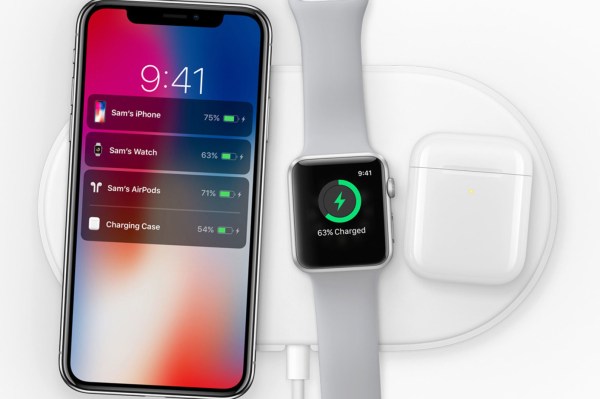Apple cancels AirPower product citing inability to meet its high standards for hardware TechCrunch

Apple has canceled the AirPower product completely, citing problem assembly its personal requirements.
“After a great deal effort, we’ve concluded AirPower will no longer achieve our high standards and we have cancelled the task. We make an apology to the ones clients who were looking ahead to this launch. We keep to agree with that the future is wireless and are dedicated to push the wi-fi experience forward,” said Dan Riccio, Apple’s senior vice president of Hardware Engineering in an emailed declaration these days.
After a put off of over a year because it changed into first introduced in September of2019, the AirPower charging mat has grow to be some thing of a focus for Apple’s recent addiction of announcing envelope tickling merchandise and no longer certainly shipping them on time. The AirPods, famously, had a piece of a put off earlier than becoming extensively available, and had been shipped in restrained quantities before eventually hitting their stride and turning into a proper cultural moment.
AirPower, however, has had a long way extra time to marinate in the soup of public opinion because it changed into introduced. Along with latest MacBook keyboard problems, this has functioned as a form of flash factor over discussion that some thing isn’t proper with Apple’s hardware approaches.
Everything I’ve personally heard (Apple is saying nothing officially) about the AirPower delay has been related to tough engineering problems related to the laws of physics. Specifically, I’ve heard that they ran too hot because the 3D charging coils in close proximity to one another required very, very cautious power management.
Always well worth studying @gruber’s show recaps. The AirPower situation is real – heat is a problem and it was shown off too early. Sometimes Apple does this and eng rises to the challenge and delivers. Sometimes, physics. //t.co/2YNlpPO1qO
— Matthew Panzarino (@panzer) September 16,2019
Obviously, it would do Apple very little good to release a charging mat that caused devices to overheat, perhaps even to the point of damage. So, it has canceled the project. If you know more about this, feel free to reach out, I’m fascinated.
There have been other scenarios where Apple has pushed the hardware envelope hard and managed to pull it off and ship them, the iPhone 7 Plus, its first with a twin-lens system, being one that jumps to mind. Apple had a fallback plan in a single-lens version but at some point had to commit and step off a ledge to get it done in time to ship — even though knowing they still had problems to solve. Apple has done this many times over the years, but has managed to ship a lot of them.
AirPower, but, was the other type of case. The challenge changed into apparently canceled so currently that containers of the brand new AirPod cases even have pics of AirPower on them and the brand new AirPod units have mentions of AirPower.
This is a very, very uncommon public misstep for Apple. Never, in the course of the discussion about while AirPower is probably released, did the overall trend of the dialogue lean in the direction of “never.” That’s a testomony to the potential of its hardware engineering groups to continuously execute capabilities that seemed to be nearly not possible over time. In this case, it seems that the engineering issues have verified, at the least at this factor, insurmountable.
The fact of the matter is that hardware is, well, hard. The basic concepts of wireless charging are well known and established, but by promising the ability to place multiple devices anywhere on a pad, allowing them to charge simultaneously while communicating charge levels and rates, Apple set its bar incredibly high for AirPower. Too high, in this case.
Let's block advertisements! (Why?)
//techcrunch.com/2019/03/29/apple-cancels-airpower-product-mentioning-lack of ability-to-meet-its-excessive-standards-for-hardware/
2019-03-29 19:14:44Z
52780254579804
0 Response to "Apple cancels AirPower product citing inability to meet its high standards for hardware TechCrunch"
Post a Comment